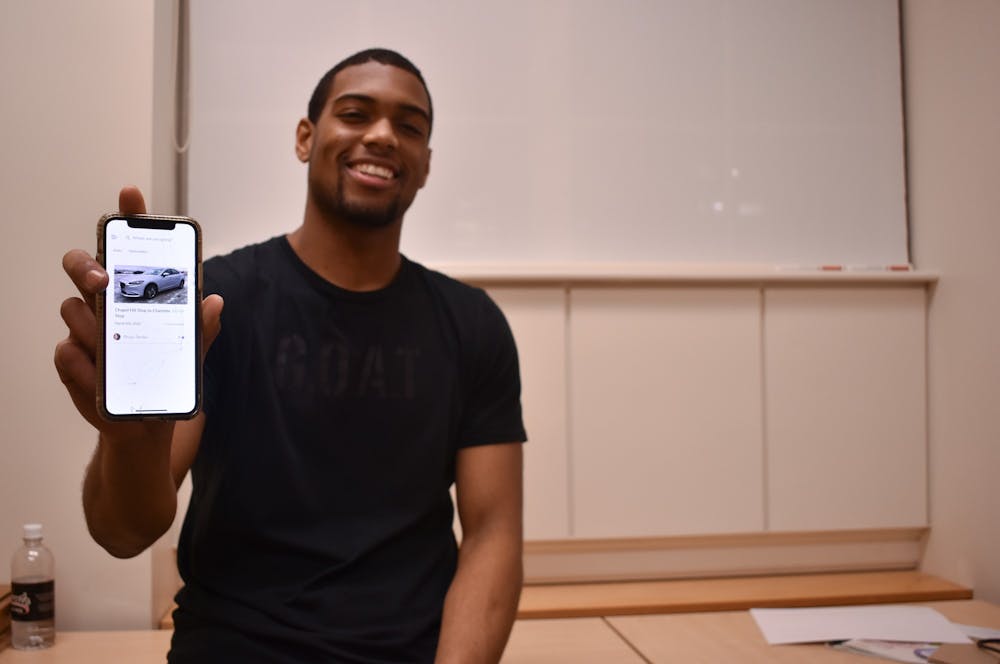Users must also upload at least one social media account so that others can make an informed decision about who they'll be riding with.
To coordinate rides, a driver posts the date and time of their drive, along with the number of available seats, the type of baggage they can fit and other information. Riders can then search for trips, select their seat and submit a request to the driver. Both riders and drivers can peruse the other users’ profiles before making a decision.
For Stewart, this is all about accountability and choice. With other ridesharing apps, he said, finding rides can feel very transactional and riders are limited in which drivers they accept.
Stewart's idea grew from first-draft pictures and a PowerPoint to preliminary calculations and a prototype that he pitched to different people. Eventually, the idea got to Bernard Bell, the executive director of the Shuford Program in Entrepreneurship.
Bell said he was impressed by Stewart’s determination and focus. After meetings with Stewart, he decided to invest in the start-up using a Shuford program fund.
Bell guided Stewart through the process of growing Vector Rideshare from an idea to a start-up and became the business’ chief advisor.
“Ultimately, the question is: will the dogs eat the dog food?” Bell said, meaning — will consumers actually use the product?
To find out, the Vector team conducted word-of-mouth surveys and marketing campaigns at FallFest, on Franklin Street, at football and basketball events and through social media.
Bell said Vector Rideshare has succeeded because of three components: users want it, it's scalable and it's quickly understandable.
Feedback so far has been positive, members of the Vector Rideshare team said.
Stewart said he recalls one story of a University of Virginia student sharing a ride with a Duke University professor, which ended with a job offer in the professor’s lab. That's the kind of connection central to his idea, he said.
"In a car ride, the environment is catalyzed," he said. "Whether you like me or not, we’re going to have to have a conversation.”
To get the day's news and headlines in your inbox each morning, sign up for our email newsletters.
Anna Bennett, a junior global studies major, and Vanessa Agunobi, a junior media and journalism major, joined Stewart in spring 2019.
Bennett said even though she didn’t know where the idea would go, she wanted to support Stewart’s vision. She and Agunobi are now the head of outreach and head of social media, respectively.
Agunobi said she felt the product idea was strong and that she wanted to support a Black-owned tech business and make sure it succeeded.
Since the business is still new, the team is still learning better organizational techniques and strategies for getting the word out, Bennett said.
Agunobi said while she has improved her content creation skills, the biggest learning curve has been to balance being a student with creating a start-up. She said being persistent in the face of red tape was difficult.
The Vector Rideshare team is now looking to expand across the country and raise the value of the company, Stewart said.
Although the coordination is between drivers and riders, Stewart said he values the skill sets his team members bring to the conversation and wants to tap individuals’ talents to improve the business.
Bell said those social skills are what sets Stewart — and his product — apart.
“Maybe five percent of our students have businesses that are scalable like this,” he said. “Part of it is Nehemiah.”
Aside from being teachable and coachable, Bell said Stewart has charisma.
“The reason I’m still involved is because he is such a great business partner," Bell said.
university@dailytarheel.com



